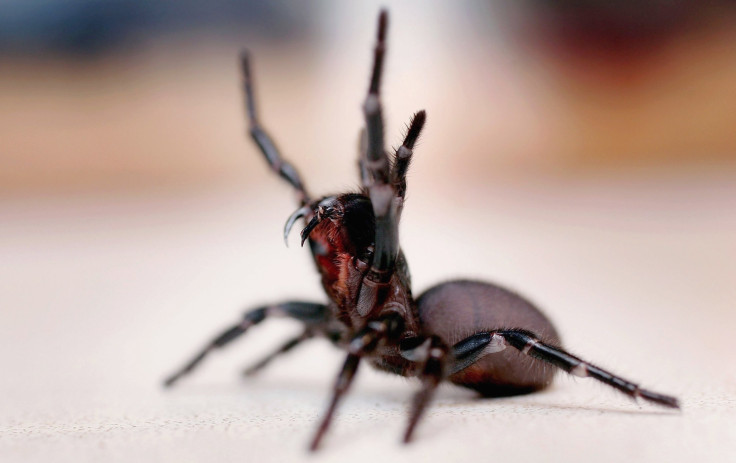Can Spiders Kill You? Boy Survives Poisonous Bite After Taking Record Breaking 12 Vials Of Anti-Venom

Those with arachnophobia, beware: It might take quite a few vials of anti-venom if you ever get bitten by a certain deadly spider. Ten-year-old Matthew Mitchell from Australia was bitten Monday night by a funnel-web spider – one of the deadliest in the world – and luckily survived after taking 12 vials of anti-venom.
The dosage was the largest amount required for a spider bite in Australia’s history. The spider bit Mitchell on his finger while the boy was assisting his dad with errands at their home. After getting the spider off, Mitchell was rushed to the hospital and started experiencing extreme symptoms like foaming at the mouth and seizures. It wasn’t until he was given 12 vials that his symptoms alleviated.
“It sort of clawed onto me and all the legs and everything crawled around my finger and I couldn’t get it off,” Mitchell told the Daily Telegraph about the incident.
The funnel-web spider is native to Australia and two species of its Hexathelidae family are considered deadly because their venom kills at a rapid rate. A total of 14 deaths by its spider bite were accounted for worldwide, where an attack could kill a victim in as little as fifteen minutes.
“In terms of speed of death, in Australia we say funnel web, 15 minutes, no sweat. With a funnel web bite to the torso, you’re dead. No other spider can claim that reputation,” Dr. Robert Raven of the Queensland Museum in Australia told The Guardian.
During a situation where someone is bitten by a poisonous spider, experts recommended a few tips which include keeping the wounded limb at the same level as the heart while waiting for professional medical help:
"If you lower the limb, it’s going to hurt more and swell more. And if you put it too high up, that's going to cause more circulation of the venom. Neutral is best ... get in a position of comfort if you can and wait for rescue,” Liet. Lisa Wood from Miami Dade Fire Rescue’s Venom Response Unit told TODAY.
© Copyright IBTimes 2024. All rights reserved.






















